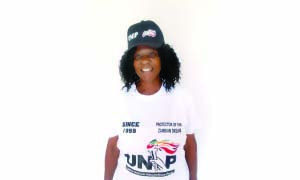From time immemorial, women have gathered on different platforms to pool their strength in addressing the problem of woman being disadvantaged.
Despite efforts to address gender inequality in various aspects of life globally, efforts by women to make an impression at the highest level of politics have continued.
The African Union’s Agenda 2063 commits to improving women’s political participation through aspiration three on good governance, democracy, respect for human rights, justice and the rule of law.
Recently, the Non-Governmental Gender Organisations Coordinating Council (NGOCC) issued a statement expressing concern that major political parties in the country adopted very few women.
“It is sad to note that there is no political will by our political party leaders to bridge the gender inequality gaps between women and men in decision making positions, especially in the political parties. We have noted how women have been systematically left out to run as both councillors and members of Parliament,” the statement said.
United Nations Independence Party (UNIP) aspiring candidate for Kabwata Constituency in Lusaka who bemoaned the lack of a level playing field for women participating in the general elections slated for this Thursday.
Engiwe Mzyece Simfukwe said lack of economic resources is one of the biggest obstacles to women’s participation in politics.
Ms Simfukwe, who is also the only female candidate running for the Kabwata Constituency parliamentary office and a former political analyst in the Ministry of Foreign Affairs, said today’s politics have become costly, which gives men and those with a lot of money an advantage.
“Money is needed for electoral campaigning in the community and requires much time and commitment. Citizens appear to sell their vote to the highest bidder by requesting for monetary exchange for their vote,” Ms Simfukwe said.
She said just like families are created to have males and females to lead them, so politics equally need women to participate in leadership.
Currently, politics are dominated by men, and the important ideas that women may bring to the fore are missing.
Some feel that as a result of this, there is no holistic development.
Ms Simfukwe said women need to become visible.
She said although they run businesses which support many households, women have little or no access to loans as they need funding to improve their businesses.
Ms Simfukwe said women’s access to loans will lead to better families and good nutrition.
She asked people in Kabwata Constituency to vote for her on the UNIP ticket and entrust her with the responsibility of being the first female lawmaker to represent Kabwata Constituency and once voted, she promised to adequately represent the area in Parliament.
“It is difficult to campaign in an environment where there is violence and as a woman, one requires bodyguards to move around in the constituency. As a woman aspiring for a political position in Parliament, it is difficult to campaign with our male counterparts due to rampant violence by political party supporters,” she said.
Ms Simfukwe said having lived in Kabwata Constituency for more than 20 years, she has a traceable background that will enhance her ability to influence development.
Ms Simfukwe further said additionally, women in politics have limited time to go round the community, unlike their male counterparts who have enough time in the night to continue with their campaigns.
Other woman also expressed concern about the playing field not being level for female candidates.
A woman who spoke on condition of anonymity said it is important for women to enjoy the benefits of being citizens just as men do as they participate in politics.
“Many women who aspire for political positions shun competing favourably with their male counterparts due to rampant violence in political parties by carders,” she said.
The woman further said resources for campaigns in the community and nomination fees payable by the candidates are also barriers for aspiring female candidates.
She said for most of the women in peri urban areas, their role is restricted to doing household duties like preparing food, fetching water and gathering firewood.
She said women are heavily involved in taking care of their home and as such, campaigning in the evenings for women has proved to be a challenge.
Indeed, such roles for women have restricted their ability to participate in governance and politics as most of their time is spent at home.
Zambia is a member of the Southern African Development Community (SADC) protocol which embraces the 50/50 women representation in decision making positions.
To meet this, all the leadership structures should take note and support women and youths who have been adopted to stand on different positions.







